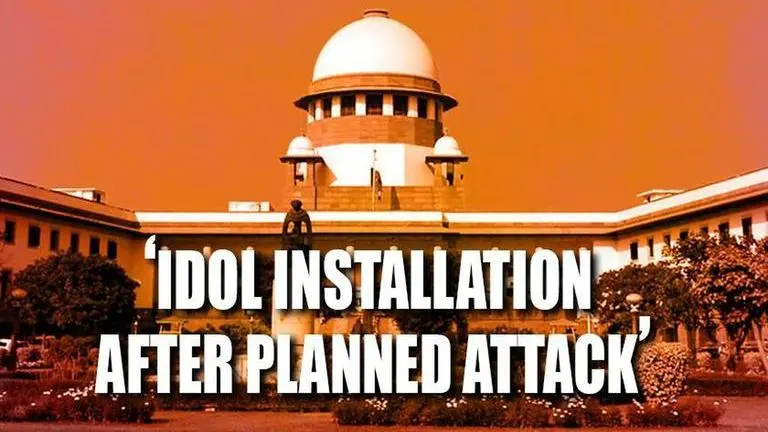Updated 3 September 2019 at 19:38 IST
Ayodhya case: 'Idol installed after planned attack',says Rajeev Dhawan
Yet another massive statement has emerged from the Muslim parties' advocate Rajeev Dhawan on Wednesday t the Supreme Court's daily hearing in the Ayodhya case
- India News
- 3 min read

Yet another massive statement has emerged from the Muslim parties' advocate Rajeev Dhawan on Wednesday, at the Supreme Court's daily hearing in the disputed Babri-Masjid Ramjanmabhoomi case. Dhawan, while arguing in court has stated that the installation of a Ram idol in the site of Babri Masjid was done after a planned attack (in 1949). He claimed that the Hindu's claims that the idol was installed due to 'Lord's Ram miraculous appearance' was not as such. He added that the idol was installed at the site in a planned manner after the attack in 1949. Arguing about the 1949 government's decision, he said that when about 30 mosques had been destroyed in Delhi, the then-Prime Minister Jawaharlal Nehru had ordered them to be restored. The case has entered Day 18 of the daily hearings in the Supreme Court.
Dhawan's argument for the Muslim parties
Arguing for the Muslim parties claim on the Ayodhya disputed land, Dhawan has also argued that the 'Nirmohi Akhada' had illegally possessed the disputed land in 1934. He added that the Waqf Board Inspector has also submitted a report about the same to the Court. Questioning the validity of the Hindu parties demand to establish a 'Ram Mandir' at the Babri Mosque site, he said that any religious place cannot be changed after the day India got its freedom and the establishment of the Constitution. On this basis, Dhawan added that land cannot be awarded to a particular party on the basis of 'self-proclaimed' claims. He further stated that "As far as a title suit of civil nature is concerned, there is no room for historical claims".
Advertisement
'No Mandir existed'
Earlier on Monday, Dhawan had argued that no temple existed on the land before Babri Masjid was built. Dhawan had claimed that there is no evidence of a massive structure's existence on the land prior to Babri Masjid's construction. He had also claimed that the Archeological Survey of India was posed with the same question and there was no conclusive evidence to prove the same. Dhawan's claim had irked many religious parties and political leaders.
Advertisement
SC says mediation failed
Earlier on August 2, in a massive setback to the Ayodhya land dispute, the Chief Justice of India Ranjan Gogoi had declared that the Ayodhya mediation panel has failed. He announced that day-to-day hearings will start from August 6. A day prior to this announcement, the three-member Ayodhya mediation panel submitted its status report to the Supreme Court in a sealed cover. This was in compliance with the orders of the apex court earlier on July 11.
READ | Ayodhya Case: 3-member mediation panel submits report to Supreme Court, hearing at Friday 2pm
Three-member mediation panel
The Supreme Court March 8, 2019, had appointed a three-member panel to mediate in the Ayodhya title suit case. The panel-led by retired Supreme Court justice Fakkir Kalifulla and also comprises Sri Sri Ravi Shankar and Sri Ram Panchu. The media was also barred from reporting on the mediation process in order to maintain confidentiality. Also, the panel was directed by SC to submit the report within eight weeks, the deadline of which culminated on May 3. The panel held its first sitting in March in Faizabad, Uttar Pradesh.
Published By : Suchitra Karthikeyan
Published On: 3 September 2019 at 18:47 IST
